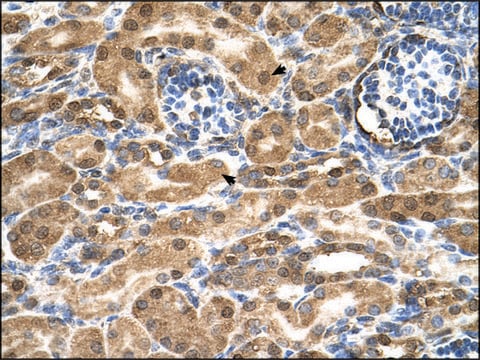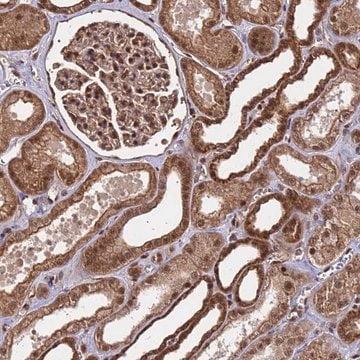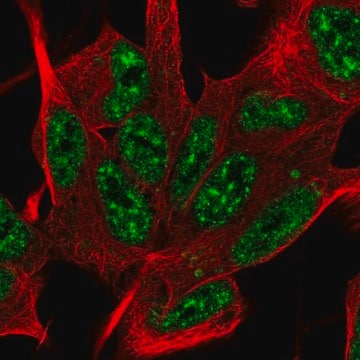Principaux documents
GF05266672
Lead
rod, 100mm, diameter 19.0mm, 99.95%
Synonyme(s) :
Lead, PB007950
About This Item
Produits recommandés
Pureté
99.95%
Forme
rod
Fabricant/nom de marque
Goodfellow 052-666-72
Résistivité
20.65 μΩ-cm
L × diam.
100 mm × 19.0 mm
Point d'ébullition
1740 °C (lit.)
Pf
327.4 °C (lit.)
Chaîne SMILES
[Pb]
InChI
1S/Pb
Clé InChI
WABPQHHGFIMREM-UHFFFAOYSA-N
Catégories apparentées
1 of 4
Cet article | HPA018265 | HPA070710 | HPA038499 |
|---|---|---|---|
| conjugate unconjugated | conjugate unconjugated | conjugate unconjugated | conjugate unconjugated |
| antibody form IgG fraction of antiserum | antibody form affinity isolated antibody | antibody form affinity isolated antibody | antibody form affinity isolated antibody |
| biological source rabbit | biological source rabbit | biological source rabbit | biological source rabbit |
| form buffered aqueous solution | form buffered aqueous glycerol solution | form buffered aqueous glycerol solution | form buffered aqueous glycerol solution |
| UniProt accession no. | UniProt accession no. | UniProt accession no. | UniProt accession no. - |
Description générale
Informations légales
Mention d'avertissement
Danger
Mentions de danger
Conseils de prudence
Classification des risques
Aquatic Acute 1 - Aquatic Chronic 1 - Lact. - Repr. 1A - STOT RE 1 Oral
Organes cibles
Central nervous system,Blood,Immune system,Kidney
Code de la classe de stockage
6.1C - Combustible acute toxic Cat.3 / toxic compounds or compounds which causing chronic effects
Classe de danger pour l'eau (WGK)
nwg
Point d'éclair (°F)
Not applicable
Point d'éclair (°C)
Not applicable
Faites votre choix parmi les versions les plus récentes :
Certificats d'analyse (COA)
Désolés, nous n'avons pas de COA pour ce produit disponible en ligne pour le moment.
Si vous avez besoin d'assistance, veuillez contacter Service Clients
Déjà en possession de ce produit ?
Retrouvez la documentation relative aux produits que vous avez récemment achetés dans la Bibliothèque de documents.
Notre équipe de scientifiques dispose d'une expérience dans tous les secteurs de la recherche, notamment en sciences de la vie, science des matériaux, synthèse chimique, chromatographie, analyse et dans de nombreux autres domaines..
Contacter notre Service technique










